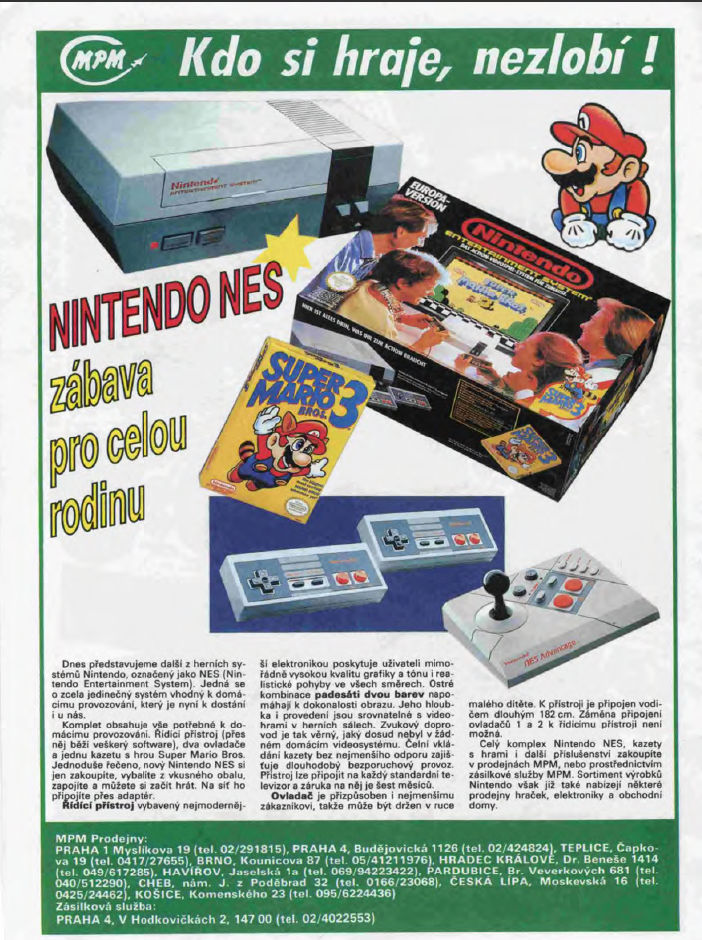Platform: Game Boy
Game & Watch Gallery
Kirby's Dream Land 2
Kirby's Dream Land
Kirby's Block Ball
Disney's Aladdin
Kid Icarus: Of Myths and Monsters
Snoopy's Magic Show
Mighty Morphin Power Rangers: The Movie
The Flintstones: King Rock Treasure Island
Taz-Mania 2
Joe & Mac
Kaeru no Tame ni Kane wa Naru
Kirby's Star Stacker
Pingu: Sekai de Ichiban Genki na Penguin
Avenging Spirit
James Pond 2: Codename - RoboCod
Mickey Mouse IV: Mahou no Labyrinth
Bonk's Revenge
Blaster Master Jr.
Wario Land II
Garfield Labyrinth
Kid Dracula
Game & Watch Gallery 2
Tetris
Castlevania Legends
Kwirk
Shaq-Fu
Bomberman GB
Madden NFL 96
Super Mario Land
Ninja Gaiden Shadow
Dirty Racing
Pokémon Red Version
Donkey Kong Land III
Pokémon Blue Version
Qix
Trip World
Magnetic Soccer
Taz-Mania
The Real Ghostbusters
Pokémon Picross
The Legend of Zelda: Link's Awakening
Game Boy Camera
Donkey Kong
Bomberman GB
Pokémon Green Version
Kirby's Pinball Land
The Simpsons: Itchy & Scratchy in Miniature Golf Madness
Pokémon Yellow Version: Special Pikachu Edition
Rampart
Viewing Single Trivia
subdirectory_arrow_right Nintendo Entertainment System (Platform), Super Nintendo Entertainment System (Platform)
▲
2
▼
Popular conceptions about Nintendo's release history in Europe claim that their hardware was never released in the former Eastern Bloc until the 21st century. Rather, these countries instead saw the proliferation of various clone consoles called "Famiclones", such as the Dendy (a Taiwanese-built bootleg that achieved widespread popularity in the Commonwealth of Independent States, made up of the ex-republics of the former Soviet Union) and the Pegasus (which became as popular in Poland as the Dendy did in Eastern Europe). However, while Famiclones did indeed dominate the Eastern European gaming market during the 1990s, Nintendo was not only aware of this, but actively attempted to halt the spread of bootlegs in these regions in favor of officially sanctioned products.
In 1994, Nintendo made a deal with Steepler, the Dendy's distributor in Eastern Europe, to permit continued sale of the Dendy in exchange for equal distribution of the Super Nintendo Entertainment System and Game Boy in the Commonwealth of Independent States; official Russian releases of these systems even included Dendy stickers on the packaging to reflect the arrangement. Meanwhile, in various other parts of the former Eastern Bloc, Nintendo made deals with other third-party distributors; among others, the NES, SNES, and Game Boy saw official releases in Poland, Hungary, and the former territories of Yugoslavia and Czechoslovakia during 1993–1994.
In 1994, Nintendo made a deal with Steepler, the Dendy's distributor in Eastern Europe, to permit continued sale of the Dendy in exchange for equal distribution of the Super Nintendo Entertainment System and Game Boy in the Commonwealth of Independent States; official Russian releases of these systems even included Dendy stickers on the packaging to reflect the arrangement. Meanwhile, in various other parts of the former Eastern Bloc, Nintendo made deals with other third-party distributors; among others, the NES, SNES, and Game Boy saw official releases in Poland, Hungary, and the former territories of Yugoslavia and Czechoslovakia during 1993–1994.
Joshua Rogers video about Nintendo in Eastern and Central Europe:
https://www.youtube.com/watch?v=q75Re7deJC0
Russian-language articles about the Nintendo/Steepler deal:
https://web.archive.org/web/20190427025842/https://www.kommersant.ru/doc/94004
https://web.archive.org/web/20240601223552/https://dtf.ru/games/970617-legenda-o-slone-kak-it-kompaniya-steepler-sozdala-dendy-i-osnovala-rossiiskii-konsolnyi-rynok
https://www.youtube.com/watch?v=q75Re7deJC0
Russian-language articles about the Nintendo/Steepler deal:
https://web.archive.org/web/20190427025842/https://www.kommersant.ru/doc/94004
https://web.archive.org/web/20240601223552/https://dtf.ru/games/970617-legenda-o-slone-kak-it-kompaniya-steepler-sozdala-dendy-i-osnovala-rossiiskii-konsolnyi-rynok
Comments (0)
You must be logged in to post comments.
